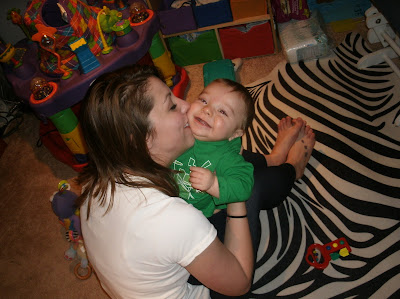I don't write as much as I used to.
Well. Would you believe me if I told you that there are people who wear me down and batter me to the point where I just have nothing at all to say?
I have an incredible talent for reading people and seeing right through them. And a bad habit for ignoring my better judgement and letting myself be charmed and totally bullshitted (a real word, according to my Mac) by absolutely everyone. This is what I am struggling with lately. And this is why there just isn't much to say.
So I have accepted a 30-Day Blog Challenge. Maybe it will get the wordy juices flowing and get me back to my old big-mouthed surly self. Enough of this self pity. Fuck 'em all, right? Right? Right.
Well. The first challenge is easy enough.
As you all know, my 'husband' is named Mike. He's a carpenter. He's a leafs fan. His favourite food is steak. He is a very typical man in every sense of the word. He belches all the time. He is not in touch with his feelings. He feels me up every time I walk by and I have to smack him. He is Carter's dad and we live in a
very nice basement, thank YOU very much.
There really isn't much to say about our relationship. We met at a wedding 4 years ago. I was engaged to someone else. I was just drawn to him for some reason. And he to me (probably because I looked so awesome in that dress). My mother wanted me to be with him so badly. He was around without really being around for almost 3 years after that wedding, hanging out at his best friend's parents' trailer which was 2 trailers away from my parents'. So I heard of him and he of me. But the timing was never right. But I always thought about him.
Along came facebook and one day I saw that he had become friends with my mom on facebook. So I added him and sent him a message (what did it say again?). We set up our first date which was on October 30th 2008 at Jack Astors. I had a salad. He had bowtie pasta (which seems strange now because I know he's not a huge pasta fan... but anyway). Things became official in January. And now it's been nearly 2 years and we have a cute little baby.
When I think back on it today, I think I was so drawn to him at that wedding because we were always supposed to end up together, and have Carter, and raise him and be a family. I think there were invisible strings that tied us together for years, and it just had to happen when it did. Otherwise, why wouldn't I have forgotten about him? After all, there have been a lot of boys at a lot of weddings. But no other Mike.
He has made me a better person. He made me grow up. He has made me a better mom and sometimes I don't deserve him.
These days we fight about how he never wipes the counter after preparing food, how he never puts his clothes away but leaves them stuffed in a pile in front of the closet, preventing me from getting to about 10 - 15 pairs of shoes I haven't seen in a year. Stuff like that. But at the end of every day, we lay next to one another and cuddle and
whatever else and when our baby cries we jab each other in the ribs, in an effort to avoid having to get up with him.
It's a good life!






















































